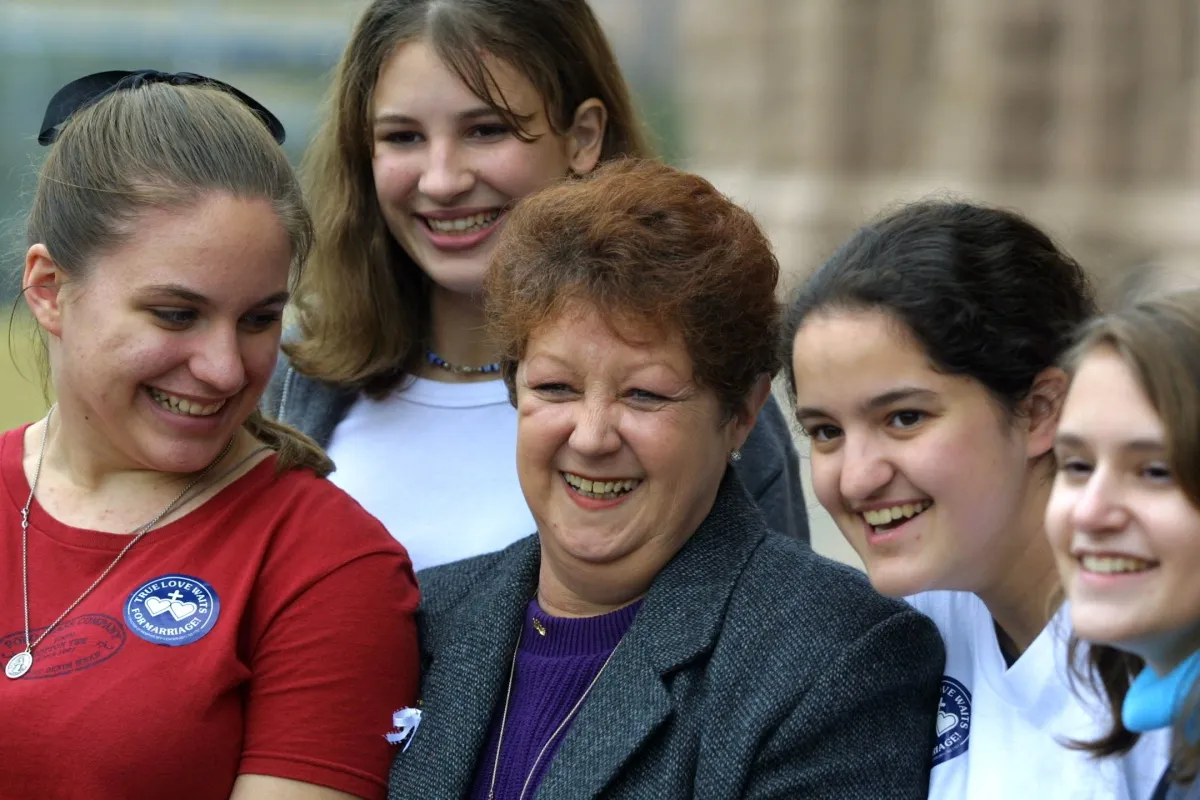The big twist of AKA Jane Roe was announced before the documentary aired on FX, where Norma McCorvey, a.k.a. Jane Roe in the Roe v. Wade Supreme Court Case, admitted that her very public evangelical “conversion” into a “pro-life” advocate was a fraud that she acted out because she was getting paid thousands of dollars to do so. Coming into the documentary with that knowledge already made me frustrated, but McCorvey’s story does hold other important lessons.
McCorvey found herself the woman who signed the affidavit of the case that would be Roe v. Wade when she got pregnant in Texas and wanted to get an abortion in 1969. She told her doctor that the pregnancy came from rape, and after fleeing a roach-infested back-alley abortion clinic, she was eventually introduced to lawyers Sarah Weddington and Linda Coffee. Weddington and Coffee brought the case to the Supreme Court and argued that a constitutional “right to privacy” protects a pregnant woman’s right to choose whether or not to have an abortion.
For the sake of the lawsuit, McCorvey was perfect: a poor, working-class woman who could not afford to have another child and could not afford to go to a state where abortion was legal.
Roe v. Wade became law in 1973, and the court decided that during the the first trimester, governments could not prohibit abortions at all. In the second trimester, governments could require reasonable health regulations, and in the third trimester, abortions could be prohibited as long as there were certain exceptions (e.g. to protect the life of the mother).
McCorvey herself had already given birth to what was her third child by then, so when she was called about the news, she wasn’t personally excited for herself, but for those who would come after. Still, she became a very vocal and active pro-choice advocate, but in 1987, controversy emerged because she admitted that she hadn’t been raped, but had said so at the time in order to obtain an abortion.
Charlotte Taft, a Dallas abortion care provider, explains that this “admission,” even though it had nothing to do with the actual legal case of Roe v. Wade, was treated by people in the movement as a liability, since people thought McCorvey being raped had something to do with the case. McCorvey wasn’t allowed to speak during a big event celebrating Roe v. Wade, although she was there. Instead, glamorous actresses were the speakers—women who, because of their financial mobility, would not have been considered good plaintiffs for the case.
McCorvey’s experience is not an excuse for her switch to pro-life for pay, but it highlights the figurehead issues a lot of progressive feminist movements have. They tend to always put middle-class, white, and straight women at the forefront. Being the face of the pro-choice movement gave McCorvey an identity, but it also gave her endless harassment from the anti-abortion group Operation Rescue.
Operation Rescue targeted Norma. They could see her vulnerability, her loneliness, her trauma, and they exploited her desire to be loved and seen as good, sweetening the pot with monetary compensation for being the “big fish” or “trophy.”
“When I think about Norma, one of her yearnings in life was to be good,” Taft explains. “Being the poster child of the pro-choice movement — she got to be a hero, she got to meet celebrities, she got to have applause and give speeches. But with them, they told her she was finally good.”
Rob Schenck, who was an anti-abortion leader then, admitted that they saw her as “a world-class trophy.” The documentary makes it clear how vile this group is: they are Islamaphobic, homophobic, and anti-choice in the vilest ways, and McCorvey stood beside them for money. That is inexcusable.
Yet, I also understand being disillusioned with the very movement you helped push forward with your story and your body, when all of a sudden you are seen as “not good enough.” She was a person, not a figurehead, and when there are attempts to frame progressive movements around one “perfect victim,” all they do is set a standards that are unfair. Abortion rights are bigger than any singular person, even Jane Roe herself.
I don’t agree with McCorvey, and despise what she did and the harm she caused. But, I do feel empathy for her, not because she “deserves it,” but because I don’t know what kind of pain it takes to sell your identity like that, and I hope to never know.
(image: Joe Raedle/Newsmakers)
Want more stories like this? Become a subscriber and support the site!
—The Mary Sue has a strict comment policy that forbids, but is not limited to, personal insults toward anyone, hate speech, and trolling.—










Published: May 26, 2020 11:17 am